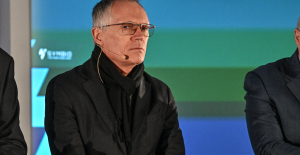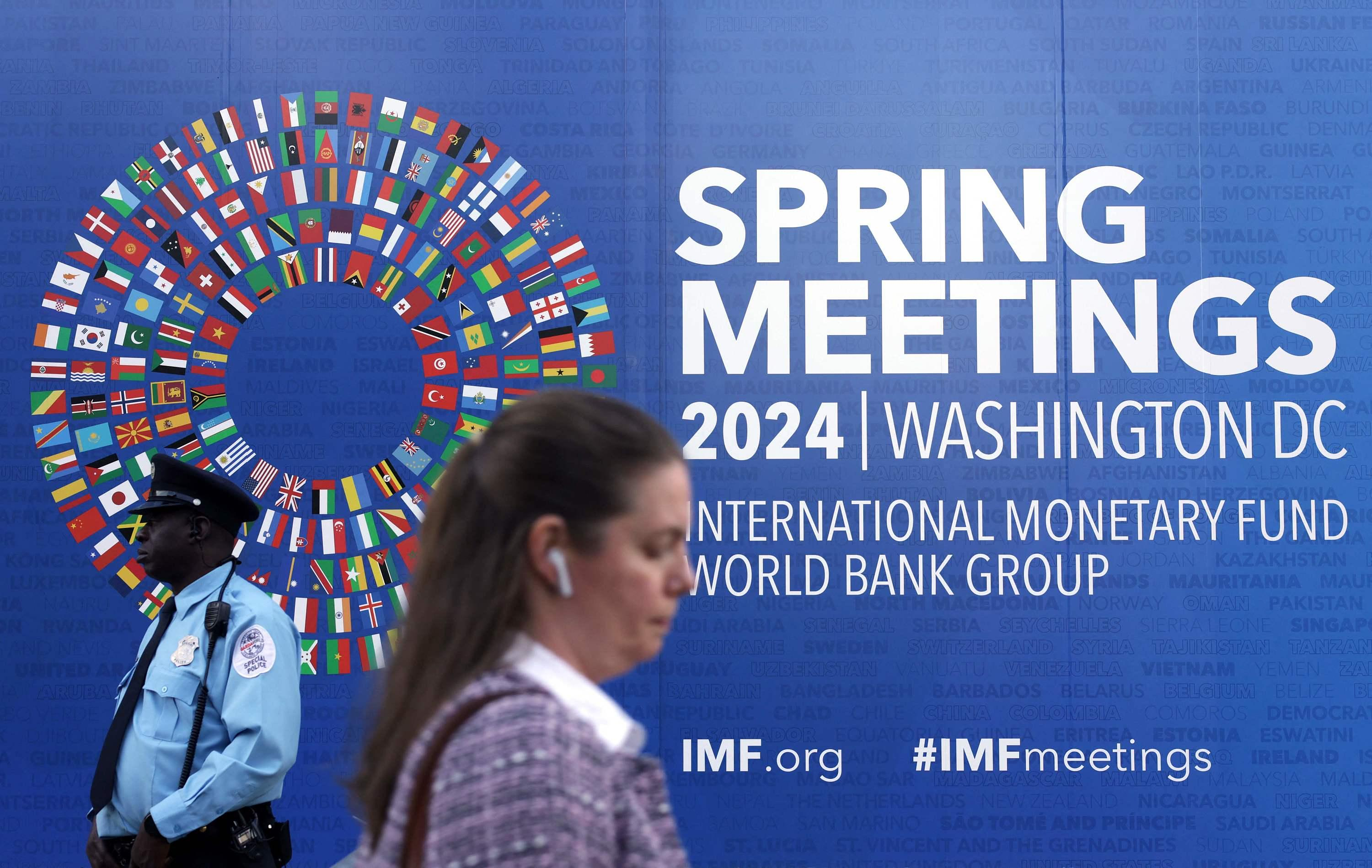Mr. Weber, the current "Germany-the Index of the digitalization 2019" is also dedicated to social media. What the Numbers say in comparison 2019 to 2017, a total of: increased the enthusiasm for Facebook, Twitter and Instagram, or decayed?
The use of social media is one of over 90 indicators that are included in our calculations. In fact, it has done since in the two years since the last Germany-the Index of the digitalization of things. The enthusiasm for social media has subsided considerably in Germany. Instead of 57 percent, only 51 percent of the respondents indicated to have in the last three months of social media used. Thus, Germany is developing against the European Trend. In all other EU-countries the use has increased.
The study examines the use of this media state to state. Where is the enthusiasm, where it is rapidly declining?
Of real enthusiasm in any state. In our investigation period, the usage increased only in Hamburg, Rhineland-Palatinate and the Saarland and there is also only minimal. In all other provinces, we have noted a decline in use. Particularly significant falls in Bremen with a minus 18 percentage points. Almost a third of the people of Bremen, having used two years before social media, don't do that anymore. However, the latest survey results, which could not be included in the Index, indicate a renewed reversal of the trend in Bremen, Germany.
there Is a city-country divide?
the analysis of the States shows that there are no large urban-rural gap in this question. The city-state of Hamburg and the more rural Rhineland-Palatinate occupy the top positions in use. Overall, an observable difference, however. We rely for our analysis on an annual survey of the Statistical office of the European Union: Eurostat. Eurostat allowed a differentiation of the data according to urban Conurbations and sparsely populated rural areas. According to the latest Figures, 56 percent of the inhabitants use urban spaces and social media, in sparsely populated regions, there are 49 percent. The difference between city and country is not pronounced in Germany, so very strong. In addition, the decline in the city and the country is almost the same.
Mike Weber is Deputy head of the competence centre Public IT at Fraunhofer-Institute for Open...photo: FraunhoderWhere would you rank Berlin and Brandenburg?
Berlin is located at 51 percent, exactly the national average. In Brandenburg there is, however, during the investigation period a considerable slump. While Brandenburg in Germany-Index of 2017 was 54 percent, about the national average, it is two years later, only 38 per cent. To Bremen Brandenburg recorded the strongest decline in comparison of the Federal States. Unlike in Bremen is also no re-reversal of the trend.
In the Eastern German länder, with the exception of Berlin can be reached values of below 50 percent. A clear difference with the West of Germany. The weaker use in the East only on the Internet supply is, the higher average Age, or, or, or?
Here is a whole lot of factors come to Bear: it is often more rural structures, age structure, and mobile supply play a role, the influence of each individual factor, however, remains very low. The differences are also much smaller than for example in infrastructure. Facebook Post and Twitter Tweet fail so rarely due to the lack of Internet. Also, one should not infer from the Differences that the life in Eastern Germany is less digital. In the Index for the digital life, in six more indicators, evidence, Saxony-Anhalt and Saxony, one of the top places among the countries.
The lower Numbers are surprising because in the Public the impression that on the net Shitstorm upon Shitstorm. Is the Internet just "louder"?
The astonishment is certainly due to the fact that the public and political attention for digitisation has increased questions in the past. What happens on the Internet, has always a stronger impact on our daily lives. The Figures also show that this influence is very differently pronounced. Just between the age groups, the use of media is different behavior considerably. In the case of the use of social media, such as the use of pensioners, apart to the young by a whopping 70 percentage points. So Yes, the Internet has become "louder" – some groups of the population, but can turn much better than the other.
deer like Facebook
lose, you Know how to use the various social media? Who are the winners, who the losers are?
we analyzed data provide no information. From other publications, but it can be seen that the "old" place of the deer, particularly Facebook, rather lose, while newer ones such as Instagram and Snapchat, is more likely to win. In addition, a kind of "privatization" of the communication can be observed. Closed groups in Messenger services such as WhatsApp or Threema take over more and more functions that previously, classical social networks were used.
The digital life in Germany is changing is obvious: If the use of social media decreases, for which the network is used more?
first and foremost, it is used differently, namely mobile. Here, our Index has experienced a period of significant growth. The infrastructure plays a major role. The use of behavior changes usually rather slowly. Shopping on the net, Online Banking, Online games and music and Video Streaming to take continuously over the years. For me it is particularly gratifying that the active shaping of the digital future is becoming more and more important: The work in FabLabs and the author enjoy authorship in Wikipedia, for example, great popularity.
The Interview was conducted by Joachim Huber.
More aboutBoeing to Huawei the trust was a good one – is mistrust better?
Malte LehmingMike Weber is Deputy head of the competence centre Public IT at Fraunhofer-Institute for Open communication systems FOKUS in Berlin-Charlottenburg. He is co-author of the "Germany Index of digitization, 2019".

 Knife attack in Australia: who are the two French heroes congratulated by Macron?
Knife attack in Australia: who are the two French heroes congratulated by Macron? Faced with an anxious Chinese student, Olaf Scholz assures that not everyone smokes cannabis in Germany
Faced with an anxious Chinese student, Olaf Scholz assures that not everyone smokes cannabis in Germany In the Solomon Islands, legislative elections crucial for security in the Pacific
In the Solomon Islands, legislative elections crucial for security in the Pacific Sudan ravaged by a year of war
Sudan ravaged by a year of war Covid-19: everything you need to know about the new vaccination campaign which is starting
Covid-19: everything you need to know about the new vaccination campaign which is starting The best laptops of the moment boast artificial intelligence
The best laptops of the moment boast artificial intelligence Amazon invests 700 million in robotizing its warehouses in Europe
Amazon invests 700 million in robotizing its warehouses in Europe Inflation rises to 3.2% in March due to gasoline and electricity bills
Inflation rises to 3.2% in March due to gasoline and electricity bills Olympic Games-2024: which professions are likely to strike during the competition?
Olympic Games-2024: which professions are likely to strike during the competition? Pizzas sold throughout France recalled for “possible presence” of glass debris
Pizzas sold throughout France recalled for “possible presence” of glass debris “As for a football player, there is a contract”: Carlos Tavares defends his remuneration of 36.5 million euros
“As for a football player, there is a contract”: Carlos Tavares defends his remuneration of 36.5 million euros Stellantis: shareholders validate the controversial remuneration of Carlos Tavares
Stellantis: shareholders validate the controversial remuneration of Carlos Tavares Dune 3 will be the last film of Denis Villeneuve's adaptation
Dune 3 will be the last film of Denis Villeneuve's adaptation Shane Atkinson, humble disciple of the Coen brothers
Shane Atkinson, humble disciple of the Coen brothers Outcry from publishers against the authorization of advertising for books on television
Outcry from publishers against the authorization of advertising for books on television Eddy de Pretto celebrates his “last party too many” at the Olympia
Eddy de Pretto celebrates his “last party too many” at the Olympia Skoda Kodiaq 2024: a 'beast' plug-in hybrid SUV
Skoda Kodiaq 2024: a 'beast' plug-in hybrid SUV Tesla launches a new Model Y with 600 km of autonomy at a "more accessible price"
Tesla launches a new Model Y with 600 km of autonomy at a "more accessible price" The 10 best-selling cars in March 2024 in Spain: sales fall due to Easter
The 10 best-selling cars in March 2024 in Spain: sales fall due to Easter A private jet company buys more than 100 flying cars
A private jet company buys more than 100 flying cars This is how housing prices have changed in Spain in the last decade
This is how housing prices have changed in Spain in the last decade The home mortgage firm drops 10% in January and interest soars to 3.46%
The home mortgage firm drops 10% in January and interest soars to 3.46% The jewel of the Rocío de Nagüeles urbanization: a dream villa in Marbella
The jewel of the Rocío de Nagüeles urbanization: a dream villa in Marbella Rental prices grow by 7.3% in February: where does it go up and where does it go down?
Rental prices grow by 7.3% in February: where does it go up and where does it go down? Europeans: the schedule of debates to follow between now and June 9
Europeans: the schedule of debates to follow between now and June 9 Europeans: “In France, there is a left and there is a right,” assures Bellamy
Europeans: “In France, there is a left and there is a right,” assures Bellamy During the night of the economy, the right points out the budgetary flaws of the macronie
During the night of the economy, the right points out the budgetary flaws of the macronie Europeans: Glucksmann denounces “Emmanuel Macron’s failure” in the face of Bardella’s success
Europeans: Glucksmann denounces “Emmanuel Macron’s failure” in the face of Bardella’s success These French cities that will boycott the World Cup in Qatar
These French cities that will boycott the World Cup in Qatar Dortmund-Atlético: two months before the Euro, Griezmann warms up the engine
Dortmund-Atlético: two months before the Euro, Griezmann warms up the engine Football: Bernd Hölzenbein, 1974 world champion, died at 78
Football: Bernd Hölzenbein, 1974 world champion, died at 78 'Everything comes to an end': Surfing legend Kelly Slater moves closer to retirement
'Everything comes to an end': Surfing legend Kelly Slater moves closer to retirement Athletics: the victory of a transgender athlete causes controversy in the United States
Athletics: the victory of a transgender athlete causes controversy in the United States


















